Updated as of 9:21 p.m. to include photos.
As the Oscars roll around each year, there are always a few people that haven’t seen some or any of the best picture nominees. Before this week, in fact, I had only seen around four of them.
Here are some quick reviews to help you decide whether these nominees are worth your time.
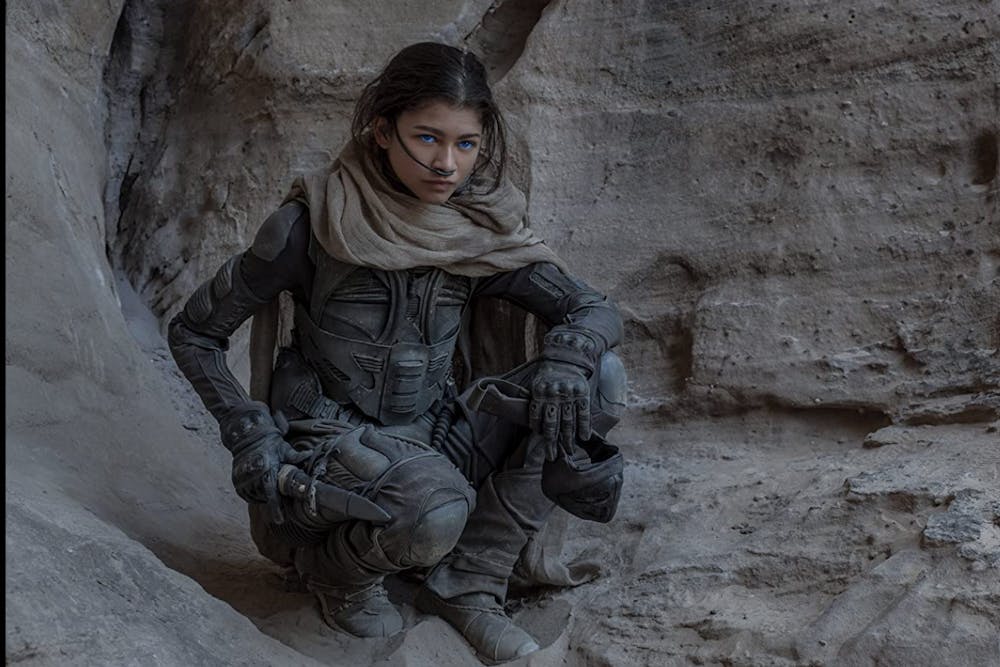
Dune: An all-star cast featuring Timothee Chalamet, Zendaya, Oscar Isaac, Javier Bardem and more creates an interesting sci-fi epic that closely follows the source material. The special effects are breathtaking and so is the sound design, though the soundtrack itself isn’t much to write home about. A major detriment to this film is its pacing, which is glacially slow for the most part with random bursts of action throughout. The climax hits far too early, and the film ends far too late — with around half an hour of content that could have been saved for “Dune: Part 2.” This makes everything after the climax almost a chore to watch.
Final Score: 7/10
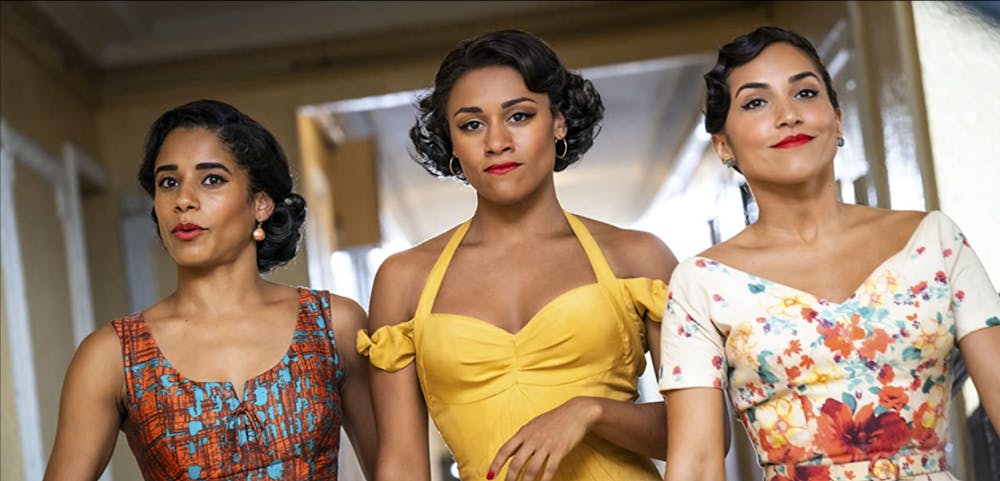
West Side Story: Steven Spielberg came back in full force, making his best film in a decade. Leonard Bernstein’s various original pieces of music embroider a beautifully filmed rendition of the classic musical that tackles themes of racial division, gentrification and the fallacy of the American dream in a way that only Spielberg can. Ansel Elgort, plays the part of the leading man, Tony, well. Rachel Zegler, who plays Maria, is good for the most part, but she comes off as stilted at moments. A surprising performance was that of Ariana Dubose, who plays Anita. Not only does she completely belt out those show tunes, Dubose has the most believable performance in the film, creating a fully realized version of her character. The only aspects detrimental to the film are directly inherited from the source material. Some of the dialogue is absolutely drenched in 50s cheese, which is a refreshing change of pace though sometimes distracting. Overall, this film is a must-watch and the best version of West Side Story to date.
Final Score: 9/10
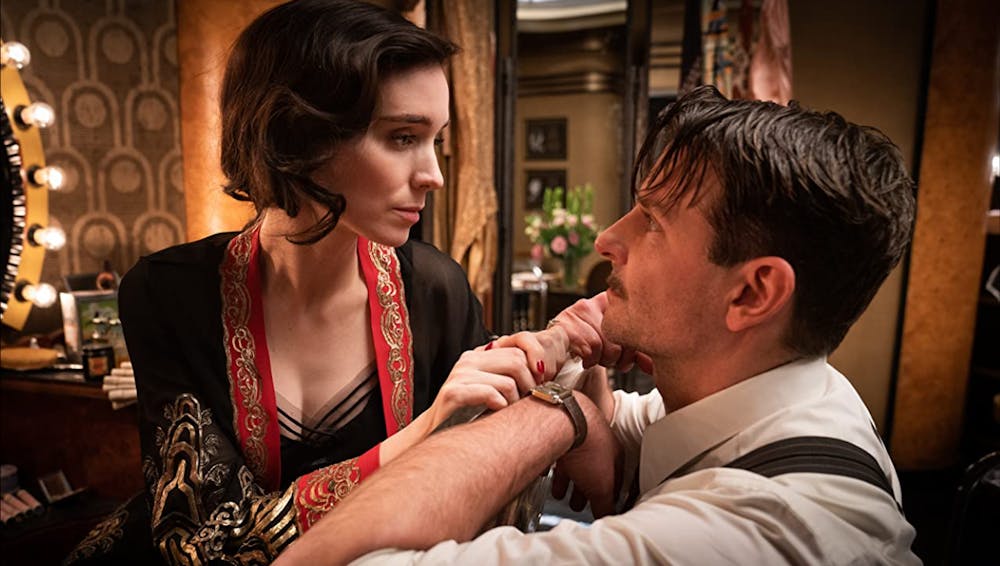
Nightmare Alley: Guillermo Del Toro is back in freaky fashion with a remake of a lesser-known 1947 film by the same name. The film starts strong, developing Bradley Cooper’s version of Stanley Carlisle, a loner with a dark past, peppering in the sleazy Clem Hoatley, played by Willem Dafoe. Additional characters introduced are the intimidating Bruno, played by Ron Perlman and the charming Zeena, played by Toni Collette. However, most of this cast is focused on for around the first 45 minutes. Around an hour in, there’s a significant time jump, and the plot goes a completely different direction — one that isn’t necessarily bad, but is so distinctly independent from the beginning of the film that it’s a little jarring. The speed of the film slows down to a molasses pace for a half-hour or so, in stark contrast to the blistering pace of the first 45 minutes. This, I assume, is where most of the original’s DNA comes into play. It doesn't feel like a Del Toro film for around an hour, though the dialogue has an old-world charm to it that few new movies can pull off. The climax saves the film, however. The climax and end of this film are so haunting that I couldn’t stop thinking about it for weeks. Suddenly, the slower moments in the middle where the smaller plot details are developed are worth every minute, and pay off in a satisfying, though dreadfully depressing way. Though the final act of the film redeems most of the second act’s flaws, the disjointed nature of the storytelling is a flaw that I can’t ignore.
Final Score: 8/10
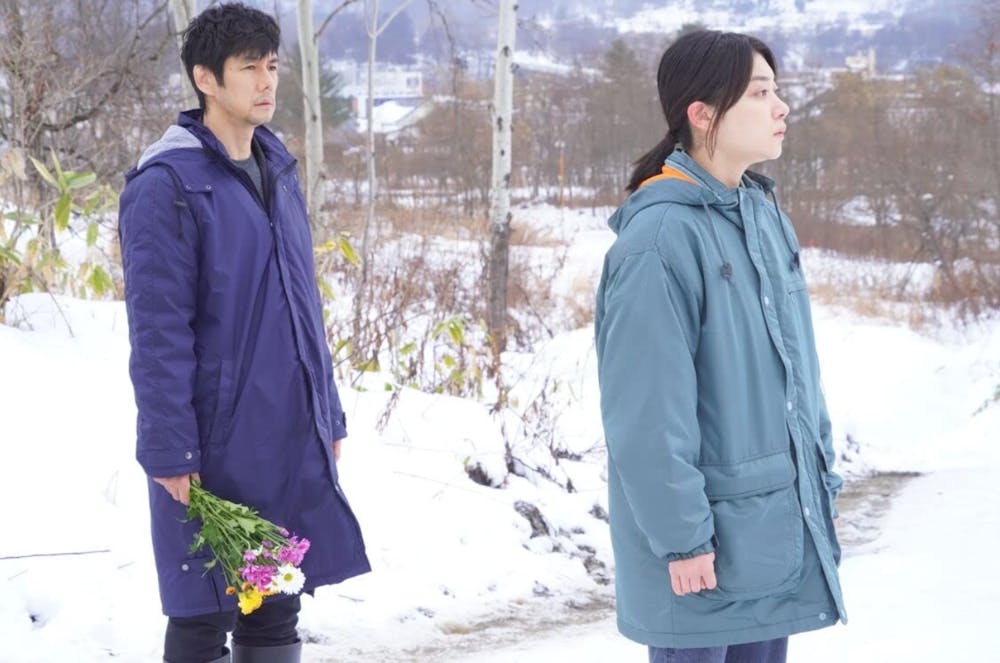
Drive My Car: Ryûsuke Hamaguchi, a director I know nothing about with a catalog of films I’ve never watched, has created a masterpiece. Starring a cast unfamiliar to most American audience members, “Drive My Car” follows a man named Yûsuke Kafuku, played by Hidetoshi Nishijima, who is asked to helm a stage play in Hiroshima after the sudden death of his wife. This is a close-hitting story of grief and reconciliation, overcoming one’s obstacles and past failures. Many of those who teach film preach the idea of “show, don’t tell,” but this film finds a delicate balance between the two and revels in it. In some instances, parsing what story the director is trying to tell is like satisfying detective work; Hamaguchi smacks you in the back of the head, challenging you to give him your full attention. In others, Hamaguchi makes individual characters do the talking rather than his directing chops. In any other film, I would criticize this. But the film focuses so much on regaining connection with your fellow man that character development through conversation greatly contributes to the major themes of the film.
I do have a few small criticisms. First, the slow pace makes the three-hour film really feel its length. Several times I checked the progress bar of the film and audibly said “damn.” The title card quite literally drops 40 minutes into the film — that’s how much it luxuriates in its runtime. Some of the runtime, however, is unnecessary. Near the beginning of the film, there are several long shots of Kafuku’s car driving along a road from destination to destination. Sure, the car is an important part of the film, but this amount of focus became an annoyance.
Final Score: 9.5/10
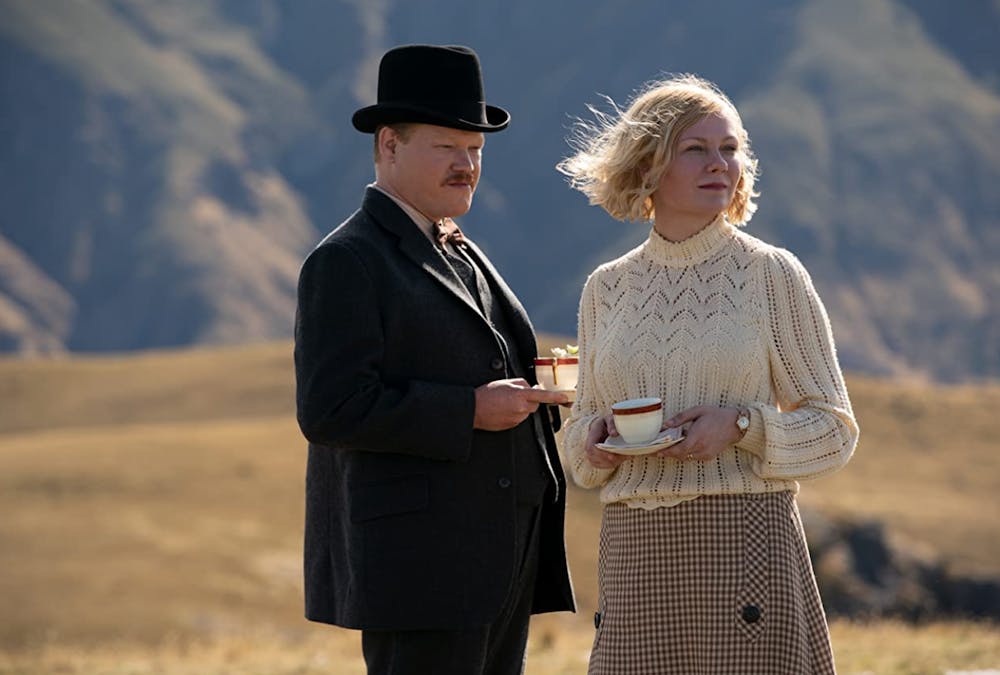
Power of the Dog: This film has some trouble going somewhere effectively. A western starring Benedict Cumberbatch, Jesse Plemons, Kirsten Dunst and directed by Jane Campion, this western focuses around a grumpy cowboy — and I mean cowboy in the literal sense of the word, not the Hollywood sense. Phil Burbank, the aforementioned grumpy cowboy, reminds me of Holden Caulfield from “Catcher in the Rye.” His character development throughout the story is even similar, though I won’t give it away here. While each important character and their relationships develop, the plot meanders from point to point. The film is split into chapters, which do nothing in service of the story. There are few significant time jumps, and none that were helped by including chapter markings. The film goes through the motions, waiting for something significant to happen, and doesn’t do so in a particularly interesting way. In a technical sense, though, the film is great. The cinematography is beautiful and highlights the setting well, the music adds to the tension of many scenes and gives the film a sort of lonely atmosphere. All the performances were good, though I’m always annoyed by Benedict Cumberbatch’s attempt at an American accent, and his attempt at a Southern accent in this film isn’t great either.
Final Score: 7/10
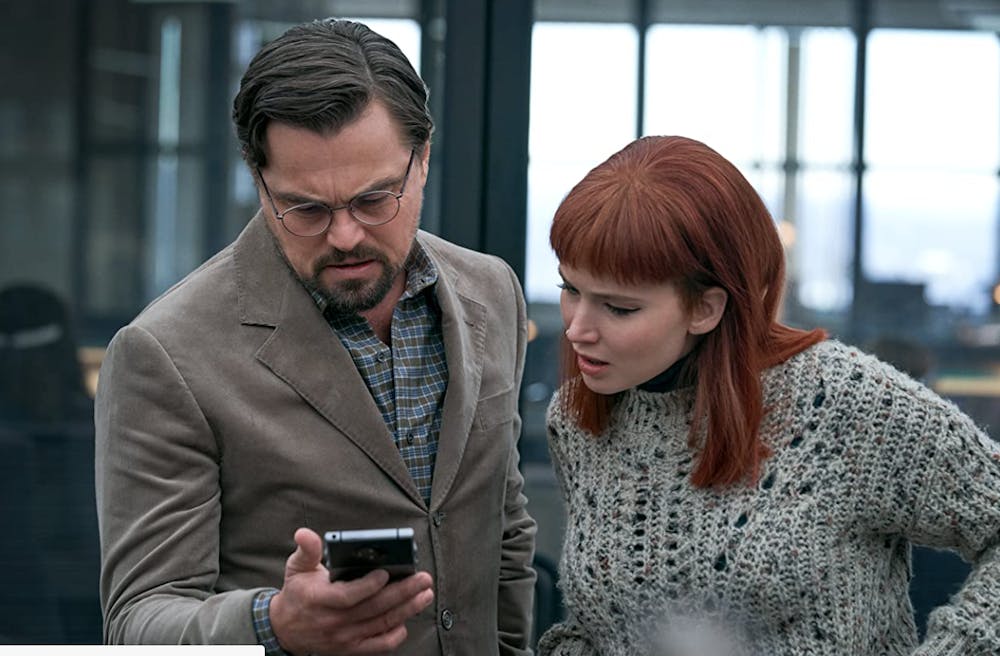
Don’t Look Up: It’s pretty rare for a comedy to be nominated for best picture, and I can’t decide if this one deserves it. This is a movie that can’t decide what it wants to be. Does it want to be like “Idiocracy” or like “Brazil?” Is this activism or parody? Whereas “Vice” was smart, witty and had a lot to say about something specific, this film is all over the place. This might be due to the film focusing on potential events, rather than something that has actually happened. Without the guidelines of history, Adam McKay seems to talk about everything that angers him about our society. The performances are fine, though Leonardo DiCaprio is the only one in the film above average. The film is often funny, I let out a chuckle now and then, but it never made me think about anything I haven’t already thought about. As a final, unrelated note, the editing of this film is atrocious, and I can’t for the life of me understand why it’s nominated for best editing.
Final Score: 5/10
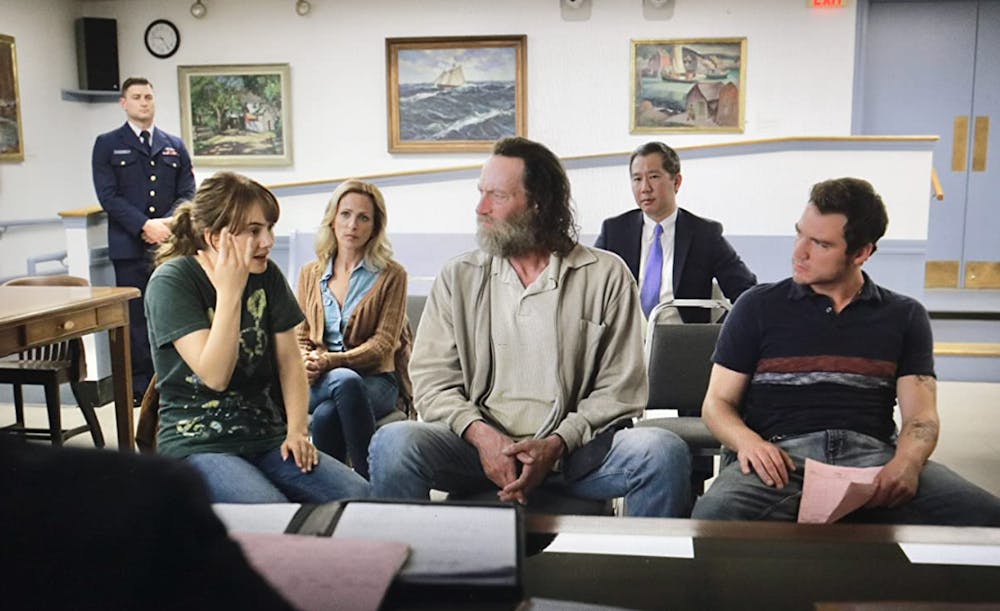
Coda: Coda isn’t particularly good, but it has its moments. It’s shot in a standard way, it doesn’t hurt anyone, it’s harmless. Sometimes it peeks out as this beautiful story of family and love — but rarely. For the most part, I was rolling my eyes at the Disney channel-level writing. Sometimes, though, the acting was pretty good — but again, only sometimes. The only character and actor that really stood out to me was Frank, the main character’s father, played by Troy Kotsur. He felt completely and utterly genuine throughout, and almost made me cry at a specific scene involving a truck bed. Several parts of this film are done really well, but others fail to do anything noteworthy.
Final Score: 6/10
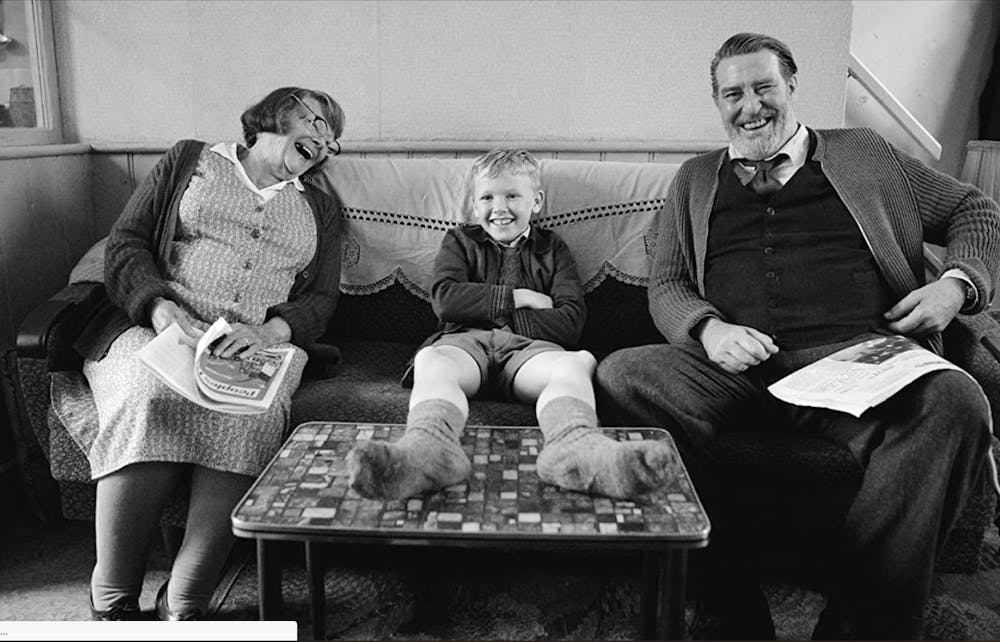
Belfast: Belfast is a wonderfully nostalgic view of a dreadfully tarnished Ireland. Kenneth Branagh takes a wonderful cast and absolutely goes wild with them. Everyone is wonderful in this film, even the child actors. All had an air of believability about them, and their interactions really gave me a sense of the tightly knitted community that Branagh is trying to convey. The film is shot beautifully, every frame feeling like an old photo or news clipping, and while most of it is filmed in black and white, there are a few moments where color is introduced — adding meaningful depth to the film’s visuals as well as the overarching plot. A minor flaw, however, is that some plot beats in film feel somewhat cliche, though that’s hard to criticize, as from what I can tell this seems to be a retelling of Branagh’s childhood.
Final Score: 9/10
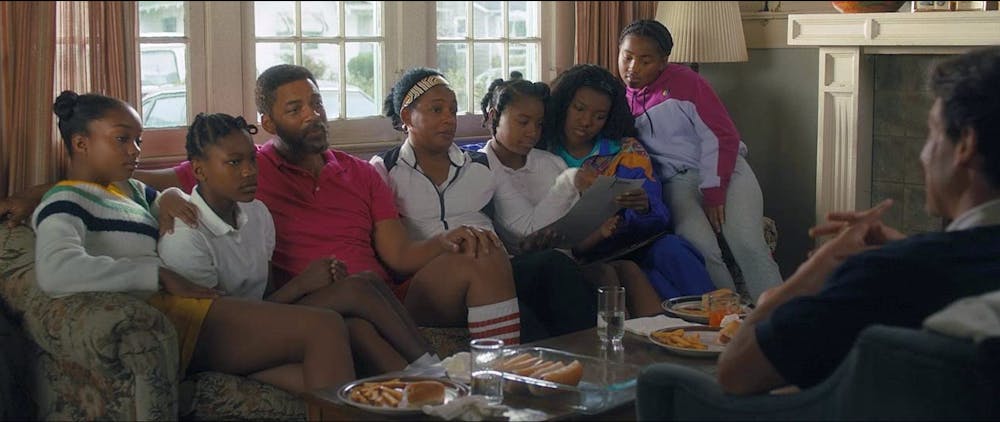
King Richard: While not as atrocious as “Bohemian Rhapsody,” this film failed to keep my attention. Will Smith, as usual, has an impressive performance, but there are no aspects of his character that made me root for him. There’s a spin put on this film that feels incorrect; at times he makes his kids, Serena and Venus Williams, do things that could be seen as abusive, like forcing them to practice in the rain or making them practice so much that they have to do their schoolwork in the car. They play this off as “oh he’s just trying to make them the best they can be,” but it just rubs me in completely the wrong way. The bottom line is that this film is generic, cheesy and spun in a way that it feels unbelievable. However, I’m not the biggest fan of biopics or sports, so take what I say with a grain of salt.
Final Score: 5/10
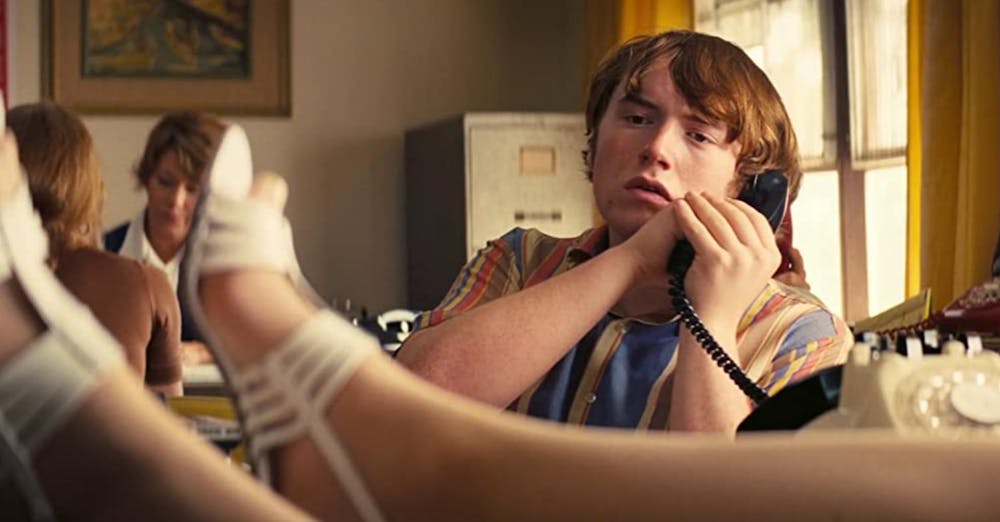
Licorice Pizza: Like Belfast, this film is a director’s nostalgic work alluding to their childhood. This film’s realization of it feels genuine and full of life. The chemistry between the two main characters, played by Alana Haim and Cooper Hoffman, is palpable, though the age gap is hard to ignore. I’ve heard some ignore this criticism, citing that characters do not have to be good people in order for the film to be good, which I find to be missing the point of the criticism altogether. It’s not that the film doesn’t acknowledge it often, it romanticizes it. It’s easier to understand the racism showcased in the film, as it’s accurate for the time period, though something as illegal as a 25-year-old woman dating a 15-year-old boy being romanticized is distractingly strange. What’s worse is that the film itself is pretty good. From what I’ve seen of his work, Paul Thomas Anderson never disappoints, and the same holds here. Once you get over the age gap, if you can, it’s enjoyable.
Final Score: 8/10


